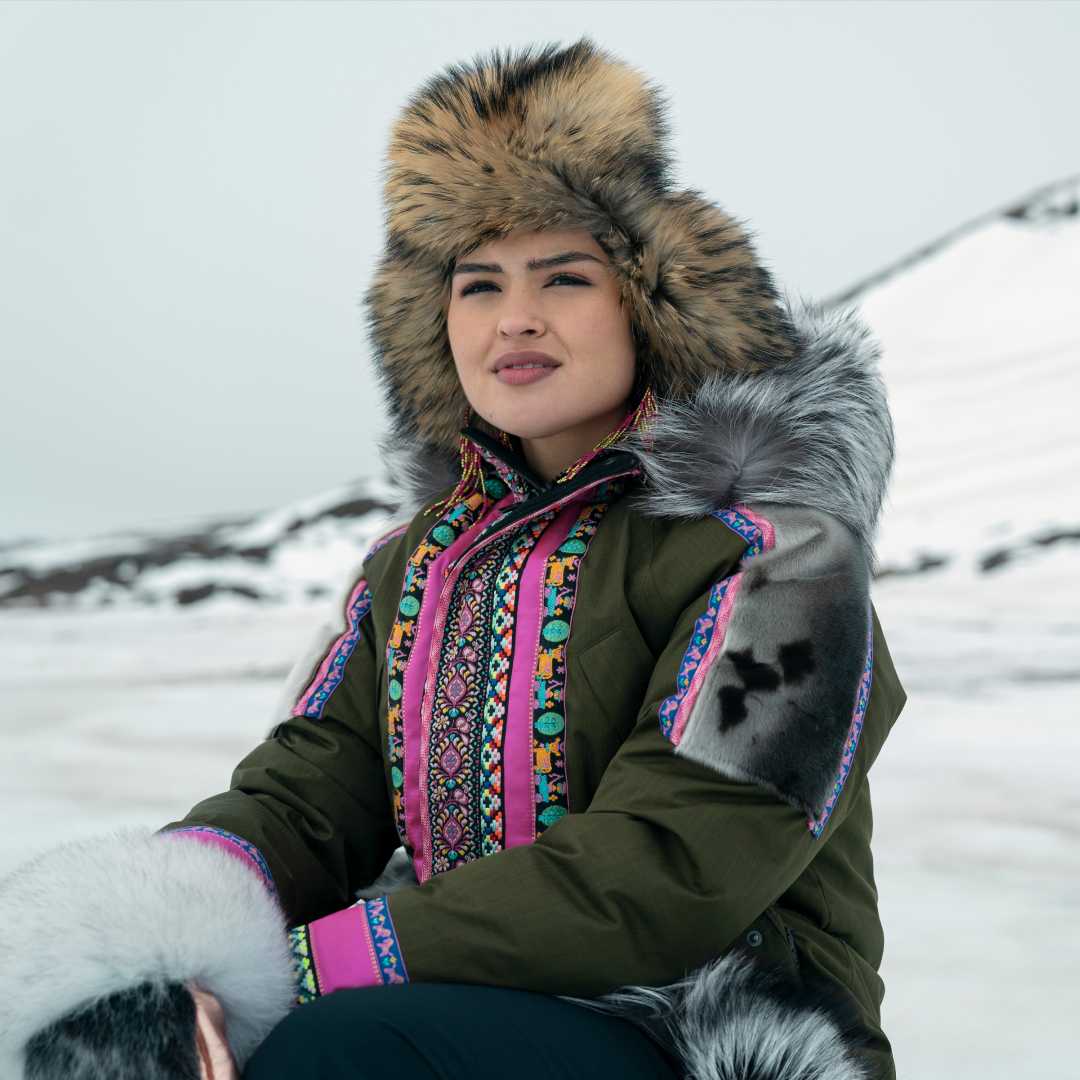The FTC Wants to Protect Women’s Privacy
The organization is fighting revenge porn, stalkerware, and more. Here, Maneesha Mithal, associate director of the division of privacy and identity protection, explains how the group created to \201cbust the trusts\201d is stopping cybercrime.


If the world of cybersecurity seems like a free-for-all without rules or grown-ups, that’s because it kind of is. The United States doesn’t have a federal data-privacy law. But the Federal Trade Commission (FTC), a government agency, can fine companies that lie or are deceptive about how they use data. (Remember the Facebook Cambridge Analytica scandal? The FTC was able to serve some justice on that.) Maneesha Mithal, the group’s associate director of the division of privacy and identity protection, explains how the FTC is holding companies accountable and what still needs to be done. (Ahem, pass some legislation!)
Marie Claire: How does the FTC regulate privacy?
Maneesha Mithal: We sue companies that don’t do enough to protect your data. We’ve brought cases against Uber, the credit bureau Equifax, and hotel chain Wyndham for not adequately protecting their customers’ sensitive data, which has led to large-scale breaches. In the Equifax case alone, we said that the company’s relaxed practices let hackers access the social security numbers and other data of more than 147 million people. We’ve also charged companies with making false claims about how they collect, use, and share data. For example, we charged Facebook with sharing people’s information with certain apps, which violated the privacy settings those people had chosen. We obtained a $5 billion penalty from the company [in 2019]—the largest privacy penalty ever—and imposed major changes in how the company approaches privacy.
MC: Research supports the notion that data-privacy concerns disproportionately impact women, people of color, and other minorities. How can we better protect these populations?
MM: To protect women’s privacy, we’ve brought cases against websites that post revenge porn, stalkerware apps (through which abusers install apps on the phones of their unsuspecting victims), and apps that secretly sell your location or health data to others. As for protecting minority populations, one practice we’ve tried to address is algorithmic discrimination. Companies can amass large data sets and apply algorithms to detect patterns. Those in turn can give them valuable insights into their customers or job applicants. While these algorithms can help companies spot systemic biases, they can also lead to discrimination. We’ve urged companies to test their algorithms rigorously to eliminate unlawful bias; if they don’t, they could be subject to a fine.
MC: What do you think is the most pervasive privacy issue today?
MM: Important privacy issues have come to the forefront as a result of the coronavirus pandemic. For example, we’re hearing concerns about the privacy of videoconferencing services, which we’ve all come to rely on. We’ve put out consumer education on how to make sure unauthorized people don’t show up at your meetings, how to make sure your video and audio are not inadvertently on, and how to avoid security problems by not clicking on unknown links.
Stay In The Know
Get exclusive access to fashion and beauty trends, hot-off-the-press celebrity news, and more.
More broadly, we’ve seen concerns about the sharing of health data to facilitate contact tracing. We need to balance our privacy with the need to use data to further better health outcomes. In using consumer data for public health purposes, we’ve urged companies to implement privacy-protective technologies, use anonymous aggregated data where possible, and delete data when the pandemic is over.
Related Story

Related Story

Megan DiTrolio is the editor of features and special projects at Marie Claire, where she oversees all career coverage and writes and edits stories on women’s issues, politics, cultural trends, and more. In addition to editing feature stories, she programs Marie Claire’s annual Power Trip conference and Marie Claire’s Getting Down To Business Instagram Live franchise.
-
 Netflix's 'North of North' Transports Viewers to the Arctic Circle—Meet the Cast of Inuit Indigenous Actors
Netflix's 'North of North' Transports Viewers to the Arctic Circle—Meet the Cast of Inuit Indigenous ActorsThe new comedy follows a modern Inuk woman determined to transform her life.
By Quinci LeGardye
-
 Princess Beatrice's Husband Pays a Rare Tribute to These Royal Family Members on Instagram
Princess Beatrice's Husband Pays a Rare Tribute to These Royal Family Members on InstagramEdoardo Mapelli Mozzi shared some behind-the-scenes snaps from the F1 Grand Prix in Bahrain.
By Kristin Contino
-
 Allow Kathy Bates to Convince You to Grow Out Your Grays
Allow Kathy Bates to Convince You to Grow Out Your GraysOne look at her new style and you'll be canceling your root touch-up pronto.
By Ariel Baker
-
 36 Ways Women Still Aren't Equal to Men
36 Ways Women Still Aren't Equal to MenFeatures It's just one of the many ways women still aren't equal to men.
By Brooke Knappenberger
-
 How New York's First Female Governor Plans to Fight for Women If Reelected
How New York's First Female Governor Plans to Fight for Women If ReelectedKathy Hochul twice came to power because men resigned amid sexual harassment scandals. Here, how she's leading differently.
By Emily Tisch Sussman
-
 Why the 2022 Midterm Elections Are So Critical
Why the 2022 Midterm Elections Are So CriticalAs we blaze through a highly charged midterm election season, Swing Left Executive Director Yasmin Radjy highlights rising stars who are fighting for women’s rights.
By Tanya Benedicto Klich
-
 Tammy Duckworth: 'I’m Mad as Hell' About the Lack of Federal Action on Gun Safety
Tammy Duckworth: 'I’m Mad as Hell' About the Lack of Federal Action on Gun SafetyThe Illinois Senator won't let the memory of the Highland Park shooting just fade away.
By Sen. Tammy Duckworth
-
 Roe Is Gone. We Have to Keep Fighting.
Roe Is Gone. We Have to Keep Fighting.How To Democracy always offers a path forward even when we feel thrust into the past.
By Beth Silvers and Sarah Stewart Holland, hosts of Pantsuit Politics Podcast
-
 The Supreme Court's Mississippi Abortion Rights Case: What to Know
The Supreme Court's Mississippi Abortion Rights Case: What to KnowThe case could threaten Roe v. Wade.
By Megan DiTrolio
-
 Sex Trafficking Victims Are Being Punished. A New Law Could Change That.
Sex Trafficking Victims Are Being Punished. A New Law Could Change That.Victims of sexual abuse are quietly criminalized. Sara's Law protects kids that fight back.
By Dr. Devin J. Buckley and Erin Regan
-
 My Family and I Live in Navajo Nation. We Don't Have Access to Clean Running Water
My Family and I Live in Navajo Nation. We Don't Have Access to Clean Running Water"They say that the United States is one of the wealthiest countries in the world. Why are citizens still living with no access to clean water?"
By Amanda L. As Told To Rachel Epstein